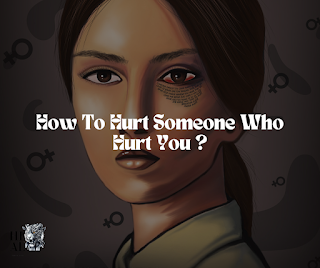How To Forget Someone Who Hurt You ?
At some point, many individuals grapple with the question of how to relinquish a painful past. It's natural to believe that your current emotional distress is irrevocably tied to past experiences. Yet, even though the past may have triggered it, freeing yourself from that pain begins with concentrating on the present.
Embracing What is Beyond Your Control
Releasing the past, including individuals who have caused you pain, often involves embracing what is beyond your control, taking ownership of your emotions, and focusing on the lessons learned. Seeking assistance can also be crucial.
Strategies for Letting Go:
Evaluate the Comfort of Your Pain
Sometimes, prolonged hurt can become familiar, almost comfortable. You might have internalized it as part of your identity or find solace in maintaining a distance from the source of your pain. However, this comfort may hinder your growth. While stepping away from familiar emotions can be uncomfortable, healing and peace await on the other side.
Express Your Feelings
Bottling up emotions can exacerbate pain and hinder your ability to let go. Finding healthy outlets to express your emotions, such as journaling, writing letters (optional), engaging in artistic expression, or confiding in a trusted friend or therapist, can aid in releasing emotional burdens.
Take Ownership
Acknowledging your role in perpetuating painful memories doesn't equate to self-blame. Rather, it's about recognizing how your focus on the past may be impeding your present and future. By reclaiming your power and redirecting your attention, you can choose to prioritize your well-being.
Make Space for New Experiences
Dwelling on past events can overshadow potential for joy and growth in the present. Prioritize setting goals, cultivating gratitude, nurturing meaningful relationships, and engaging in activities that bring fulfillment. Cleaning and organizing your physical space can also symbolize letting go of emotional clutter.
Prioritize Self-Care
Taking care of yourself isn't selfish; it's essential for healing. Seek therapy, set boundaries with others, make decisions that align with your well-being, and practice self-compassion and forgiveness. Prioritizing yourself empowers you to release past hurts and focus on your growth.
Focus on Lessons Learned
Reflect on the lessons gleaned from past experiences, including your resilience, support systems, newfound self-awareness, and coping mechanisms. Embracing these positives can ease the process of letting go.
Accept What You Can't Change
Ruminating on past choices or hypothetical scenarios can perpetuate distress. Accepting what you cannot change allows you to redirect your energy towards present and future decisions that align with your goals.
Seek Professional Support
Whether you're grappling with trauma, anxiety, or unresolved resentment, a mental health professional can provide guidance and support to help you navigate the process of letting go and reclaiming your emotional well-being.
Conclusion
Ultimately, letting go of the past is a journey that requires patience, self-compassion, and a willingness to embrace change. By incorporating these strategies into your healing journey, you can pave the way for a brighter, more fulfilling future.

